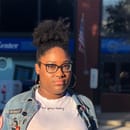“I encourage everyone to pay attention to the issues that matter to you, from jobs and the economy, to education and our schools, to criminal justice reform. Whatever it is that you care about, make sure you use your voice.” Those words were spoken by one of the greatest trap artists, 2Chainz. The rapper shares that he learned this while attending his HBCU, Alabama State University. An HBCU is a Historically Black College or University, like 2Chainz you can guess that a handful of your “favs”who also attended an HBCU before making it big. Like: Oprah, Spike Lee, Taraji P. Henson, Samuel L. Jackson, K. Michelle, Toni Morrison, Phylicia Rashad, Wanda Sykes, Yolanda Adams, Erykah Badu, Lionel Richie, just to name a few. There are so many reasons why HBCUs are needed in our society. However, the government does not see it this way and it is slowly affecting the progression of HBCUs.
I really could skip out on explaining why HBCUs are important, being that Queen Bey did so herself in her 2019 Netflix film of her Coachella performance, “Homecoming” That is really all the validation we need right? BUT, because I know that most people want their data and statistics, let me enlighten you on some. The 105 HBCUs today are responsible for producing approximately 26% of all bachelor’s degrees, 13% of all master’s degrees, and 20% of all first professional degrees to African Americans annually. Over half of all African American professionals, more than 50% of the nation’s African American public school teachers, 70% of African American dentists and physicians, almost half of the members of the Congressional Black Caucus, 40% of all STEM degrees, 40% of African American engineers, 50% of African American Lawyers, 80% of African American Judges, and 13% of African American CEOs have all graduated from HBCUs! In addition to that, 134,090 jobs are generated from these institutions and 9 out of 10 colleges that have African-American graduates that go on to pursue a PhD are HBCUs. If that is not enough to convince you on the impact of HBCUs, then I do not know what is!
The FUTURE Act is a reauthorizing bill that makes funding programs for Historically Black Institutions, Hispanic-Serving Institutions, Tribal Institutions, and all other minority-serving institutions mandatory. This furthers the education being brought by the institutions and helps present quality academic programs in STEM fields. The funding for these programs are set to expire on September 30, 2019. If this funding expires, these institutions would lose access to $2.55 billion dollars. HBCUs specifically, will lose $85 million which accrues to almost $1 million a year per institution.
As a student attending Spelman College, the #1 HBCU in the nation (a shameless plug), I may be a little biased. However, my bias is a result of the great impression that my Historically Black College has had on me. There was a time when African Americans were not allowed into colleges or universities, so we had no other choice but to make our own. It is quite admirable to see the growth and success we have been able to build within ourselves through these institutions. The amount of learning, networking, opportunity, friendship, potential, and so much more that I have been exposed to within my time at Spelman is unfathomable. I can almost guarantee that any other HBCU student or graduate would be able to say the same thing. This is why the government cannot halt or erode the funding that HBCUs are provided. If you are able to write a letter to, or call your senator on behalf of this matter, I strongly urge you to do so. This action is key in continuing to see even more success stories from minorities in the coming years!



